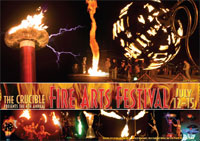Galileo is the EU’s first global navigation system, and unlike the US GPS system is partially funded by private investors. Part of their business model is to sell their data, so they’ve added noise to the signal using a pseudo-random number sequence, with the intention of selling the “offsets” to licensed manufacturers of GPS receivers. Now researchers at Cornell have decoded that sequence, using statistical analysis of the signal. From the Cornell press release:
Afraid that cracking the code might have been copyright infringement, Psiaki’s group consulted with Cornell’s university counsel. “We were told that cracking the encryption of creative content, like music or a movie, is illegal, but the encryption used by a navigation signal is fair game,” said Psiaki. The upshot: The Europeans cannot copyright basic data about the physical world, even if the data are coming from a satellite that they built.
The moral of the story: just because people benefit from your work doesn’t mean they’ve agreed to pay you, and business plans don’t carry the force of law.
(Thanks to Lenny for the link!)

